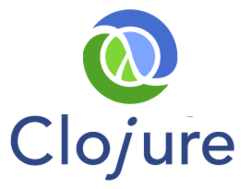
If you are fairly new to programming, chances are you have never heard of Clojure. You might therefore be wondering if this is a best place for you to start and spend your weekend on.
While we at Lisp NYC are naturally somewhat biased in favor Clojure and other flavors of Lisp-based languages, there are number of key aspects about Clojure that make it a great language to learn for everyone, independent of experience level or work specialization.
Here are a couple of them that, without going into any technical details of the language itself, will help to empower you.
Unlike many other programming languages, Clojure has a very small number of syntax rules to remember and therefore results in fewer chances for a syntax error - the most common type of mistake in programming! Even commas are optional and can be replaced by spaces. Some programmers call this syntax “radically simple.”
Where other languages require multiple lines of code, Clojure may need just one, thanks to its functional approach and closures. This not only means that you don’t need to type that much code and therefore have fewer chances to make a mistake but also that it is much easier to read and understand the code itself.
From complex algorithms to processing large datasets to calling a third party API or creating a website, Clojure and its development suite can handle it all -- and often better than other technologies.
If you are serious about learning to program and using it in your career going forward, you’ll probably find yourself in a technical interview at some point. Functional programming is an important concept and part of most interviews, even for developers who don’t use functional languages (and even Javascript developers). Yet functional pattern is difficult to learn on your own, especially if you don’t know a real functional language (such as Clojure!).
Unlike many more familiar languages, your knowledge of Clojure is sure to attract the attention of technical recruiters and potential team members. While knowledge of languages like JavaScript or Python is near-ubiquitous today, knowledge of Clojure and other functional programming languages is still rare - and knowing Clojure shows a commitment to programming above and beyond what many programmers do.
Clojure has a strong and supportive community that is open to everyone. This ClojureBridge workshop is an obvious example, but not the only one. And in addition to its own communities, Clojure is part of a wider scope of Lisp-based languages, each with its own strong network of developers.
Come and try it with us during the workshop and you’ll discover this for yourself!
If you are interested in more in-depth view of why Clojure is a language worth pursuing, check out these resources:
- From Clojure creator: "Why did I write yet another programming language?"
- Venantius: Why Clojure
- StackOverflow discussion: Why functional languages
- Quora discussion: Why would someone learn Clojure
- The Clean Coder: Why Clojure
- StackOverflow discussion: What is Clojure userful for
- Adam Bard: "Ten reasons to use Clojure/ClojureScript on your next web dev project"